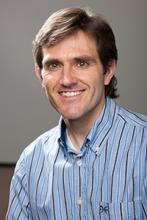Hope and teaching music
Hope and teaching music: rituals of home during displacement
Waldo Weyer, Associate Professor, North-West University, South Africa
This offers a perspective on how modern society has changed the ways in which music as a phenomenon is perceived, experienced, taught, studied, and performed. The professional musician and thus by implication also the music student has to navigate a new set of morals and values with regard to musicing in society. A life in music poses specific challenges. The researcher’s narrative set in four different milieus ─ away from home ─ is presented here as an autoethnography and can provide insight into understanding how the student-teacher dynamic has a specific bearing on overcoming these challenges.
The focus of this study is to explore how the jarring effects of several displacements from home can affect the music student and how a music teacher can help the student to cope by establishing a sense of hope. Positive psychology indicates how hope has an immediate effect on our well-being and productivity (Lopez, 2013) and ultimately contributes to human flourishing.
An analytical autoethnography presented the researcher with the opportunity to critically reflect on the journey from music student to professional musician through a lens of social relational theory. A teacher’s rituals of belonging create a sense of home and subsequently also of hope, which enables the student to successfully traverse the rigour of music studies.
Hesmondhalgh (2013) launches a critical defence of music in modern society but argues that a new construct of a social scientific approach to music is needed. In this autoethnography it is argued that the music teacher, through teaching strategies that are explicit in advancing ideas of hope, can effect qualitative change in the music student and ultimately be instrumental in realising a positive self-identity associated with a life in music.

WALDO WEYER
Waldo enrolled for a BMus degree at the North-West University in 1991 to study piano with Prof Gerhard Koornhof. He majored in piano performance, music history, pedagogy and mathematics and received several scholarships as a student.
On his return to South Africa, Waldo obtained a BMus cum laude at the North-West University, the UNISA Performance Licentiate with distinction and completed a MMus degree in piano performance, cum laude in 2004 under Truida van der Walt and Prof Bertha Spies. Performances with orchestra include concerti with the Pro Musica orchestra and the former COSA (Chamber Orchestra of South Africa).
Waldo is an Associate Professor in Piano and Piano Pedagogy. He is also a postgraduate supervisor and has delivered papers nationally and internationally on topics such as pianism, learning theories, and philosophies of interpretation. His research focuses on aspects of music cognition in the science of expertise and piano performance.
